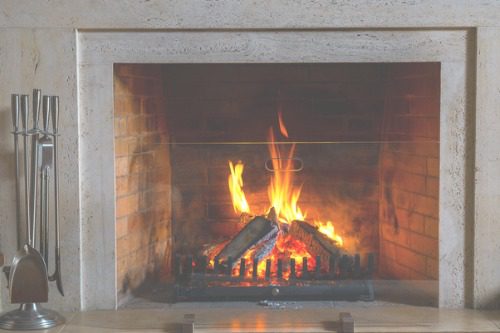10% of UK homes plan to use real fires instead of central heating

But three fifths of fire lovers are ignoring safety precautionsOnly 37% of fire users ensure their chimney is swept annuallyOnly two in five check that their fuel is suitable for their fire or stoveA similar number haven’t checked if their chimney is capped off or blocked
Three out of five residents who plan to enjoy real fires this autumn may be putting their properties at risk.
Research from Aviva finds one UK adult in 10 plans to light a fire or stove in their home, rather than using central heating this year. The study found that 92% of people are planning alternatives to keep warm and reduce energy costs.
The survey suggests, of those using fires to heat their homes, only two fifths are taking certain precautions to ensure their fires are safe and suitable for their region.
Just over a third of people who plan to use fires to heat their homes (37%) ensure their chimney is swept at least once a year, while shockingly just 41% make certain their chimney is not blocked or capped off.
A similar number (42%) say they only burn “proper” fuels on their fire rather than any household rubbish, while the same proportion (42%) check that their fuel is suitable for their fireplace or stove.
Less than half (43%) have checked that their chosen fuel is suitable for the area in which they live.
Hannah Davidson, Senior Household Underwriting Manager for Aviva, says: “It is a real concern that people could be putting so much at risk by not taking simple fire safety steps.
“Homes, possessions and sadly lives can be put in jeopardy if chimneys are capped or aren’t swept properly – or the wrong type of fuel is used. We’d urge people to take action now to make sure fireplaces and stoves are safe and suitable if people plan to use them this year.
“It’s understandable that people are looking for alternative ways to heat their properties, but it’s vital that people put a few checks in place first, to enjoy the warmth and comfort of a real fire without worry.”
Aviva has the following advice for people planning to use real fires or stoves:
Get your chimney swept regularly. Frequency depends on the type of fuel you are burning and how often you use your stove or fireplace, but The National Association of Chimney Sweeps recommends at least once a year.Check your policy terms. Some insurance policies state that chimneys must be swept at specified intervals to minimise any fire risks, particularly if a property has a thatched roof. If this isn’t done and a fire occurs, customers could risk a claim being declined.Ensure your chimney isn’t capped off or blocked. A fire should not be lit if the associated chimney is “capped” ¬– a technique used to prevent heat escaping and dirt and debris getting in if a chimney isn’t in use. Similarly, a fire should not be used until any blockages are cleared, for example, birds may have made a nest in or on the chimney if it hasn’t been in use for a few months.Check which fuels can be burned on your fire or in your stove. Wood burners are designed differently to multifuel stoves which tend to incorporate a raised grate to allow air in to help coal burn. Fuels tend to burn at different temperatures and too much heat can damage a burner.Check the rules for your region. If you live in a smoke control area you will be more limited on what you can burn. Your local authority should be able to advise for your area and you can find out more about smoke control rules at Gov.ukDon’t use your fire as a bin. Not everything is suitable for burning. For example, plastics can release dangerous chemicals when burned and aerosols are likely to explode. So, stick to the items meant for your fires and stoves.Be careful how you dispose of your ashes. Ashes and embers can hold their heat for many hours, so be sure that you don’t tip them in the bin too soon. If you need to move them, put them in a metal container outside until you are sure they are cold throughout.
Authored by Aviva





